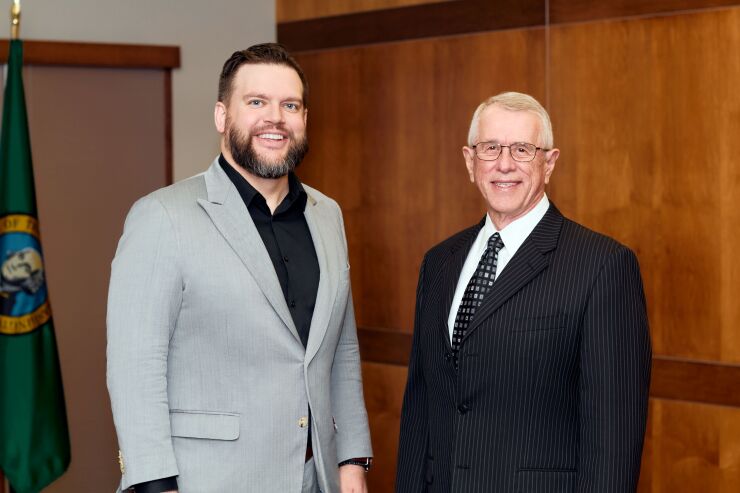
The transaction, expected to close in the fourth quarter, would
It marks the $1.9 billion-asset Harborstone's second bank deal in recent months as it seeks to expand in the Northwest via mergers and acquisitions. Its pending acquisition of Seattle-based First Sound Bank, announced last August, is projected to close in the second quarter.
When both deals are finalized, the combined institution would have approximately $2.7 billion of assets, $2 billion of loans, and $2.3 billion of shares and deposits. It would have 27 branches throughout Skagit, Whatcom, Island, San Juan, King, Pierce and Thurston counties in Washington.
Geoff Bullock, president and CEO of Harborstone, said in a press release announcing the latest deal that it also would help the credit union diversify its business lines — banks have more commercial loans — and bolster its technology capabilities at a time when digital financial services are increasingly in demand.
"The request from our members for more access and ever-improving technology has been at the forefront of our minds," Bullock said.
The deal continues a
Small banks, meanwhile,
However, the Independent Community Bankers of America and other bank advocacy groups have
Yet small bank sellers often find such deals attractive because credit unions pay cash, making transactions relatively simple. Acquisitive banks, too, have been relatively scarce. Banks pulled back on M&A over the past two years amid economic uncertainty created by high interest rates and a
Bank sellers
Including the deal announced Friday, S&P data showed that 23 combinations have been announced this year, and credit unions were the buyers in 30% of those transactions. If sustained through the year, it would mark the highest level on record.
"The buyers may not be the same, but the reasons for many small banks to sell remain firmly in place," said Michael Jamesson, a principal at the bank consulting firm Jamesson Associates.
Deals in which credit unions acquire banks started growing in prominence in 2019 and made up about 5% of all bank deals between then and 2021, according to S&P. But that percentage has swelled since 2022 — when interest rates started spiking and bank buyers tapped the brakes, creating space for credit union buyers to fill the void, the firm said.






